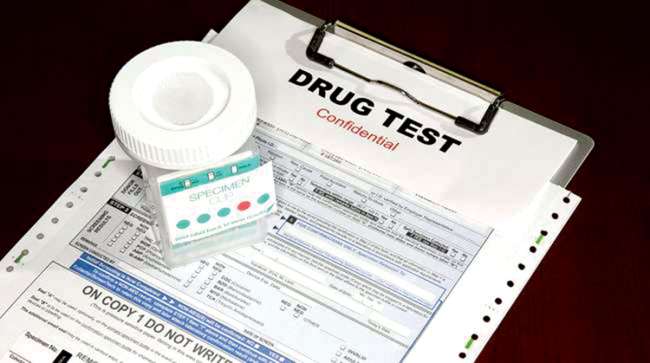Final Rule Goes Into Effect in Late 2024

A substance abuse professional will evaluate when a driver has successfully completed his or her eligibility to be retested. (Thinkstock)
Federal trucking regulators have issued a warning that late next year truck drivers who test positive for drug use will not only be placed on prohibited driving status, but will lose their commercial driver licenses and not be issued learning permits until they complete the federal return-to-work process.
“A driver with a drug-and-alcohol program violation is prohibited from performing safety-sensitive functions, including operating CMVs, for any DOT-regulated employer until the return-to-duty process is complete,” said a Federal Motor Carrier Safety Administration notice on Nov. 28. “By November 18, 2024, as part of new federal regulations, drivers with a ‘prohibited’ status in the Drug and Alcohol Clearinghouse will lose or be denied their state-issued commercial driving privileges.”
FMCSA’s final rule was issued in October 2021, but the message went out this week to remind drivers that positive drug tests will require state driver licensing agencies to take action when the drug test failures are posted in the Clearinghouse, said an agency spokeswoman.
“A CDL license will remain prohibited until FMCSA has received notification that the driver has satisfied and completed the return-to-duty process,” the spokeswoman said. “Subsequently, FMCSA removes the violation from the Clearinghouse.”
The final rule said it will help keep unsafe drivers off the road by increasing compliance with the CMV driving prohibition.
A driver’s employer is required to provide a driver a list of DOT-qualified substance abuse professionals for education and treatment. Drivers can then select their SAP based on their own research. The SAP will then evaluate when a driver has successfully completed his or her eligibility to be retested.
“To remain in a ‘not prohibited’ status, your employer must complete the follow-up testing plan with you as specified by the SAP, which must include a minimum of six unannounced follow-up tests in the first 12 months of returning to performing safety-sensitive functions,” according to FMCSA. “If you are an owner-operator, your designated consortium/third-party administrator must complete your follow-up testing plan.”
FMCSA says the Clearinghouse is having the intended effect of taking large numbers of drivers caught using drugs off the highways. However, a persistent concern is that large numbers of drivers remain in prohibited driving status after failing their drug tests, suggesting that many have been leaving the profession rather than enroll in the return-to-duty program.
Since the Clearinghouse was opened in January 2020, there have been 224,000 positive drug and alcohol tests recorded, the majority for positive marijuana drug tests.
As of the end of September, 149,374 drivers remained in prohibited status, with 113,639 not yet starting the return-to-work program.
Despite a recent illuminating research report by the American Transportation Research Institute that focused on driver marijuana test failures, FMCSA said it has no research of its own yet to explain why the large majority of drivers who test positive for at least one of the 14 substances tested appear to be moving to what they view as greener pastures — maybe even for less money.
ATRI notes that marijuana is a unique problem. While it is legal in many states, truck drivers cannot use marijuana at all. There is zero tolerance. Smoking a joint can cause a driver to fail his or her drug test.
The ATRI study concluded: “Data confirms that most [drivers] have not completed the return-to-work process and instead opted to remain outside of the interstate trucking industry.”
In a recent statement, FMCSA noted that in calendar years 2021 and 2022, more than 1 million new CDL driver records were added to the Commercial Driver’s License Information System by states — a “robust indicator of new drivers entering the industry. Therefore, we believe FMCSA’s drug and alcohol program is improving safety by directly holding individual drivers accountable for drug and alcohol violations and completing the RTD requirements.”
McCraren Compliance can help you understand and comply with FMCSA, USDOT and ADOT and ensure your drivers and your vehicles operate safely and efficiently.
Call us Today at 888-758-4757 or email us at info@mccrarencompliance.com to schedule your free FMCSA Compliance Assessment.
Original article published by Transport Topic


